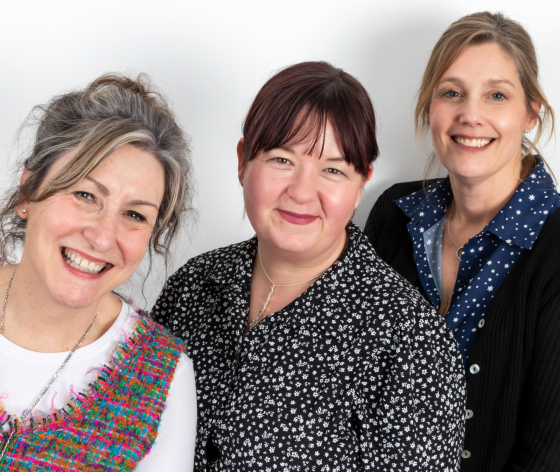Here we provide information to help you share the news that the cancer is incurable with your family and friends. We also suggest ways to create precious memories with your family and plan for your children's future.
Sharing the news with family and friends
Hearing that cancer is incurable can be incredibly difficult. It's not unusual to feel both shocked and unsurprised by the news. You might want to be alone at this time to help you absorb and process the news. You might wish to spend more time with the people who are closest to you and talk about what’s happening. Or you might not know how you feel. You may want to wait a few days before telling others, and you might then only want to tell close family and friends. You might want to ask someone close to you to let others know for you.
The reactions of others
Talking openly and honestly to others can be a great help in coming to terms with what’s happening. But perhaps this is a frightening thought and you’re worried about the reactions of your friends and relatives. People who love and care about you might feel shocked and upset at hearing that the cancer is no longer curable. You might find yourself feeling as though you need to look after other people's emotions as they deal with your news.
Speaking to a counsellor or your clinical nurse specialist (CNS) can help you feel more able to prepare for these conversations. You might also want to encourage those close to you to speak to your CNS to help understand your diagnosis and some of their own anxieties. Target Ovarian Cancer's support line and your CNS can provide information about where family and friends can find additional support. Find out more about support for family and friends.
Spending time with people you love or care about and doing the things that mean a lot can help to make this time special. You may find that taking control of practical things such as decisions about treatment and planning for the future also helps you to make sense of the news.
Relationships with your family and friends
Even if you have the support of your family, friends or partner, you may still be feeling isolated, or your self-esteem may be low. This is common particularly if you feel that time may be short or you’re worried about the future. Spending more time with family and friends is something that might help. If you can, talk to your loved ones about how you’re feeling and how they can support you. Those close to you will want to support you but may just not feel confident about how to.
You may feel that people around you are trying ‘wrap you up in cotton wool’ and are making decisions for you. If this is happening and it’s not what you want, then you need to let them know.
You may feel like you’re looking after those around you by protecting them from the reality of your situation. But now you need their support. If you don’t feel comfortable asking for this from those close to you, there are other people you can turn to. Try speaking to your CNS or palliative nurse, the local hospice, a counsellor, your GP, or a mix of these. Often your partner, family members or friends will take on the role of caring for you when you need extra help. Communicating with those who care for you, including your medical team, about what’s important to you and what you want from your care is essential. Sometimes a CNS from a palliative care team or hospice will be able to support you through this conversation with your family – either by helping you to gather your thoughts and prepare some helpful phrases to use, or by being involved with a family meeting. This may be an opportunity to bring you all together to have discussions about your future care.
It’s helpful to share who's in your hospital team and your hospice or palliative care team those who are close to you. You should also let them know who your GP is. Making sure that people have this information means they can get in touch with your medical team on your behalf if you so wish.
Support for your children
Here are some resources that can help children of different ages, who are facing loss:
-
Winston’s Wish provides support for children, young people and families who have been bereaved by serious or terminal illness.
-
riprap is a website for teenagers who have a parent with cancer.
-
The Story Cure by Ella Berthoud and Susan Elderkin which suggests stories that help children with all sorts of difficulties they might be facing.
-
Our creating memories page has more information on how to craft memories for your family which can be especially important for children.
Last reviewed: May 2022
To learn more about our review process, take a look at our information standards.



